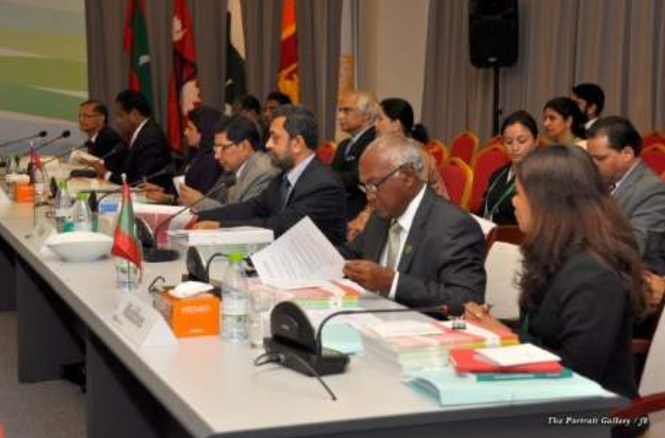
Member States of the South Asian Association for Regional Cooperation (SAARC) solidified their commitment to joint regional disaster preparedness and response efforts through the signing of a new disaster cooperation agreement. The ‘SAARC Agreement on Rapid Response to Natural Disasters’ was signed by all eight Member States at the 17th annual SAARC Summit in the Maldives last November.
Mr. Pema Dorji, Director of the SAARC Secretariat in Kathmandu, Nepal, stated that the agreement “serves to augment national endeavours in times of disasters” and describes it as “a very significant initiative being undertaken by the Member States of SAARC”. “South Asia is a region highly prone to disasters, and the idea behind this agreement is to put mechanisms in place which SAARC Member States can call upon in times of disaster”, he noted. Since the establishment of SAARC in 1985, “we have been working in many diverse areas...disasters are one area that has been accorded priority.”
The agreement obliges Member States to take legislative and administrative measures (including the development of standard operating procedures) to implement the various provisions. These include measures for requesting and receiving assistance; conducting needs assessments; mobilizing equipment, personnel, materials and other facilities; making regional standby arrangements, including emergency stockpiles; and ensuring quality control of relief items. It also accords assisting parties with exemptions from taxation, duties and other charges on the importation and use of disaster relief equipment, including vehicles and telecommunications equipment, as well as exemptions to facilitate the movement of disaster relief personnel and visa and customs formalities.
According to Mr. Dorji, the agreement is based on the key principles of sovereignty and territorial integrity: “The assistance mechanism is not automatic – it is only triggered after a request from the affected state”. It also does not affect the rights and obligations of state parties under other bilateral or multilateral treaties, conventions or agreements to which they are a party.
What is notably absent from the agreement, however, is any mention of assistance provided by international organizations, NGOs and the like. Although there were “no concrete decisions made to include or exclude reference to other international actors”, says Mr. Dorji, “this does not mean a Member State cannot accept international assistance from these actors...this remains at the discretion of the Member States. It is essentially an inter-governmental agreement, so it is their prerogative as to whether they request or accept assistance from other actors”.
Once the agreement enters into force, SAARC Member States will have to assume the obligations contained in the agreement. Although the agreement has been signed by all Member States, whether or not it will be fully ratified and the success of its implementation remains to be seen. Given that the agreement was only finalized late in 2011, Mr. Dorji imagines that the success of the ratification and implementation process remains “a question of time”.